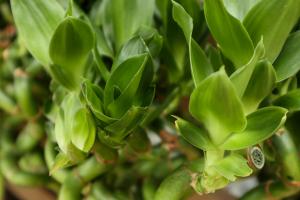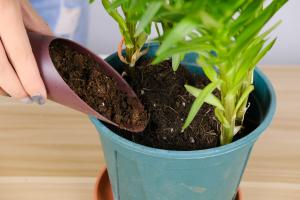How to Plant Bare Root Maple Trees
Planting bare root maple trees is an excellent way to save money and help the environment. Planting during the bare root season (usually from December to March) allows dormant trees to establish roots in your garden's soil before the hot summer months arrive. In this guide, we'll provide a step-by-step approach for planting bare root maple trees.
Step 1: Choose the Right Spot
The first step in planting a bare root maple tree is selecting the proper spot in your garden. Maple trees prefer full sun or partial shade and require well-drained soil. Avoid planting near power lines or buildings as maple trees can grow quite tall. The spot should be free from any other plants that may compete for nutrients or sunlight, and the soil should be tested for pH and nutrient levels.
Step 2: Prepare the Soil
Before planting, it is essential to prepare the soil. Remove all weeds, roots, and rocks from the area, and loosen the soil to a depth of at least 18 inches. Add organic matter, like compost or peat moss, to the mix, which increases the soil's water-retaining capabilities and encourages root growth. Adjust the pH to match the soil preferences of the maple tree.
Step 3: Soak the Roots
Before planting the bare root maple tree, soak the roots in water for several hours. This will rehydrate the tree, which helps prevent shock when transplanting. Ensure that the roots are completely coated with water and keep them in the water until you're ready to transplant.
Step 4: Plant the Tree
When planting, create a cone-shaped hole in the soil, deep enough to accommodate the roots. Place the tree in the hole, ensuring the roots spread out evenly. Cover the roots with soil and lightly tamp it down around the base of the tree. Do not compress the soil excessively, as the roots need some space to grow and expand. Water the newly planted tree, encourage the soil to settle and remove any air pockets, and add more soil if necessary.
Step 5: Mulch and Stake
Apply a layer of mulch around the tree, at least 2-3 inches deep, to keep the soil moist and maintain an even temperature. Avoid having the mulch too close to the trunk, as it can rot the bark. You also want to stake the tree, which keeps it in place and prevents the roots from being disturbed. Tie the tree to the stake with a soft material like cotton or twine, and make sure the stake is sturdy and can handle wind and weather conditions.
Step 6: Water and Maintain
After planting, the tree requires adequate water to establish itself fully. Water the tree regularly, especially during hot weather or drought conditions. Be careful not to overwater, as excessive moisture can rot the roots. Monitor the tree for signs of pest or disease, and prune it if necessary. With proper care, bare root maple trees can grow to be magnificent, long-lived specimens in your garden.
Conclusion
Planting a bare root maple tree can be a fun and rewarding experience. Understanding the tree's needs, preparing the soil carefully, and providing proper care and maintenance ensures that the tree will grow to be healthy and beautiful in your garden for years to come.

 how many times do yo...
how many times do yo... how many planted tre...
how many planted tre... how many pine trees ...
how many pine trees ... how many pecan trees...
how many pecan trees... how many plants comp...
how many plants comp... how many plants can ...
how many plants can ... how many plants and ...
how many plants and ... how many pepper plan...
how many pepper plan...































